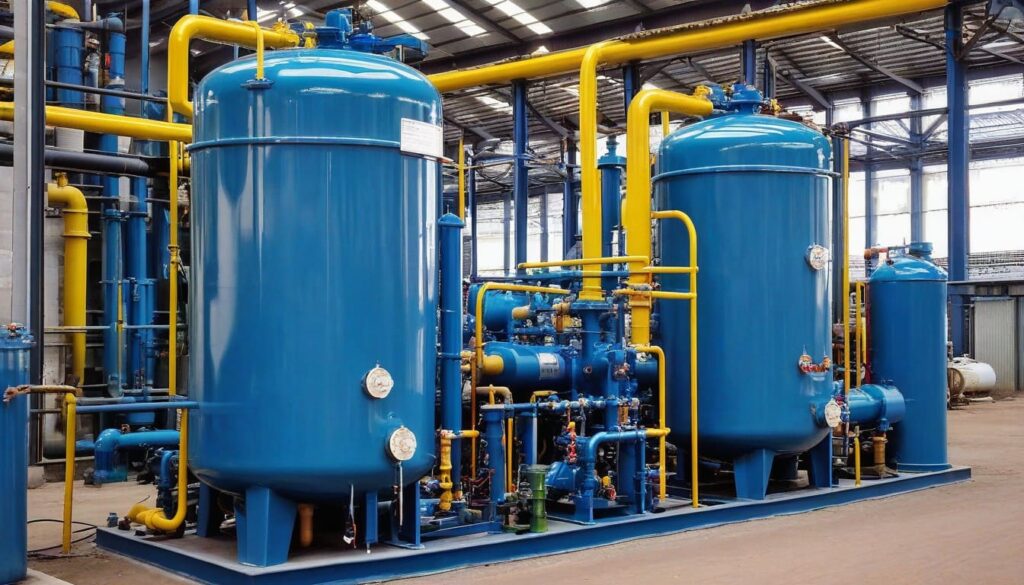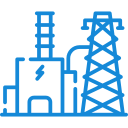Demineralization Plant
- Home
- Demineralization Plant
Type Of Services
- Bio Gas
- Demineralization Plant
- Commercial RO Plant
- Industrial RO Plant
- RO Desalination Solutions
- Effluent Treatment Plant (ETP)
- Membrane Bio Reactor (MBR)
- Membrane Aerated Biofilm Reactor (MABR)
- Moving Bed Bio Reactor (MBBR)
- Organic waste composter (OWC)
- Commercial RO Plant
- Sequence Batch Reactor (SBR)
- Sewage Treatment Plant (STP)
- Softener Plant
- Ultra Filtration
- Zero Liquid Discharge Treatment (ZLD)
- Solar Plant
Demineralization Plant
Demineralization (DM) is the process of removing minerals, salts (such as cations – sodium, calcium, iron, copper, and anions such as chloride, sulphate, nitrate, etc) from Water by using one of the following processes:
- Ion Exchange (Cation- Anion- Mixed Bed) Treatment
- Membrane Filtration (Like Reverse Osmosis followed by MB)
- Electro De-lonisation (EDI)- RO+ EDI
- Distillation / Evaporation

Ion Exchange: Demineralised (DM) Water known for typical conductivity <30 μmhos/cm. Deionised (DI) Water is known as more purified DM water with the help of a Mixed Bed (MB) unit or Electro De-lonisation (EDI). MB-based DI water produces Conductivity <5 μmhos/cm. EDI-based DI water produces Conductivity <0.5 μmhos/cm.
How a DM Plant Works
- Pretreatment: Raw water passes through filtration systems to remove suspended solids and organic matter.
- Cation Exchange: Water flows through a cation exchange resin, replacing positive ions (calcium, magnesium, sodium, etc.) with hydrogen (H⁺) ions.
- Anion Exchange: The water then passes through an anion exchange resin, replacing negative ions (chloride, sulfate, bicarbonate, etc.) with hydroxyl (OH⁻) ions.
- Regeneration: When the resins become saturated with ions, they are regenerated using acid (for cation resins) and alkali (for anion resins) to restore their ion exchange capacity.

Advantages of a DM Plant
- High-Purity Water: Removes nearly all dissolved solids, making it suitable for critical industrial processes.
- Prevention of Scaling and Corrosion: Eliminates minerals that cause scale buildup in boilers, cooling towers, and other equipment.
- Cost-Effective: Reduces the need for chemical treatments and maintenance of machinery.
- Consistent Water Quality: Ensures a steady supply of purified water for production processes.
Applications
Industries We Serve

Power Plants

Pharmaceutical Industry

Electronics and Semiconductor Industry

Chemical and Textile Industries


